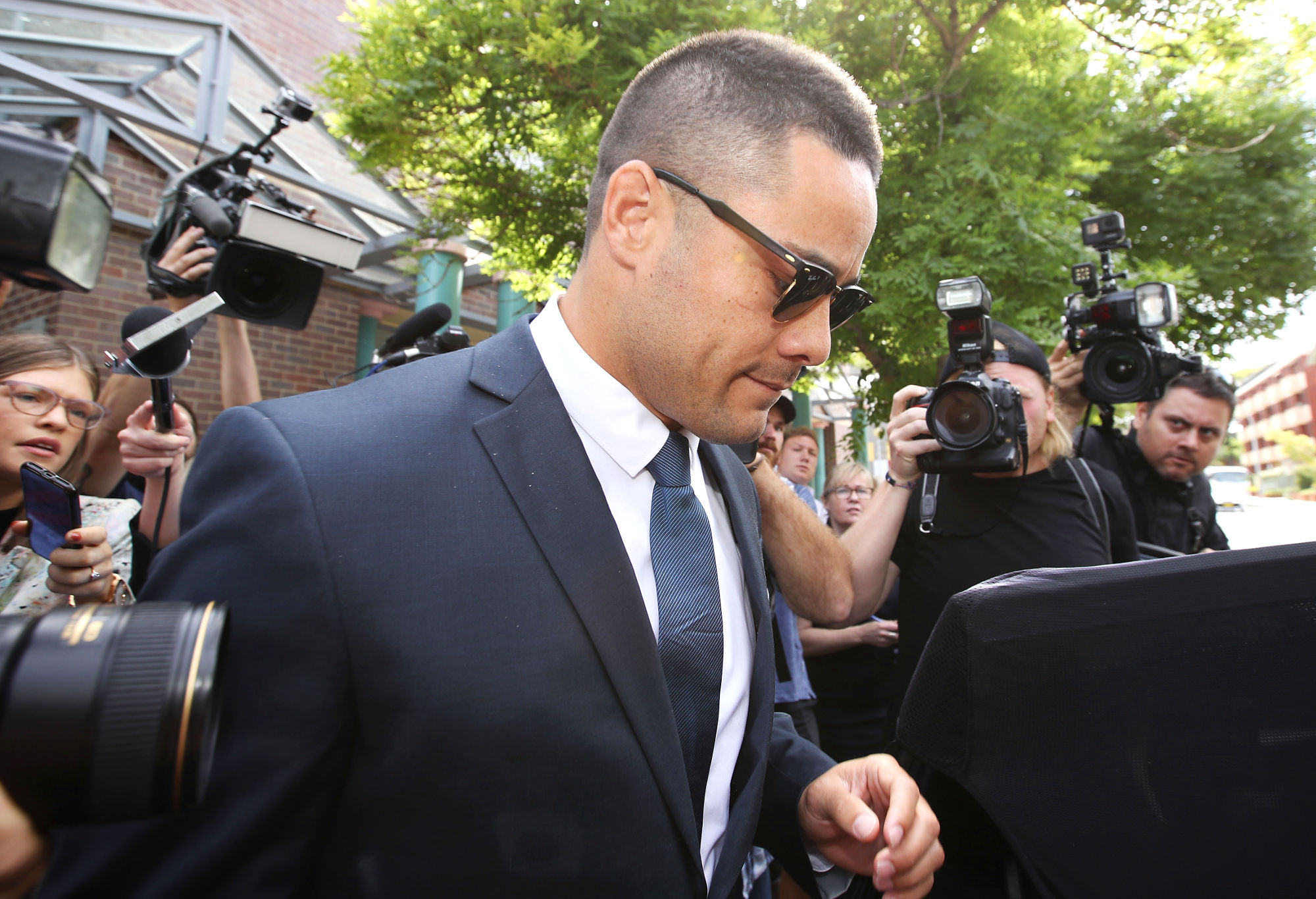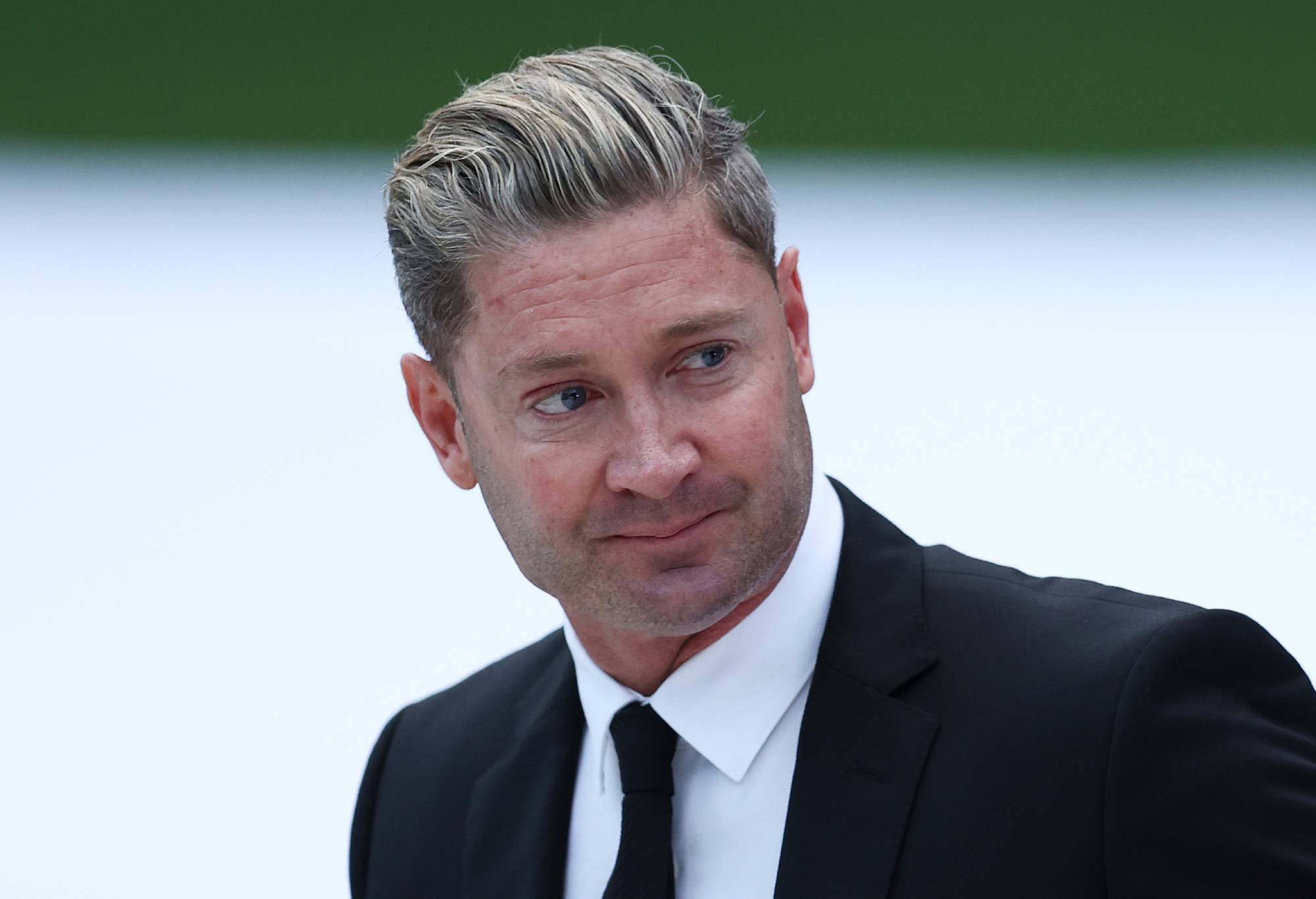'Look like a Chucky doll!' Cam McInnes does Matty Johns interview looking like this, hilarity ensues
"Apologise for my appearance as well, boys - I usually look better than this!"
Opinion
Earlier this month, former NRL player Jarryd Hayne was found guilty of two counts of sexual intercourse without consent. The conduct took place in 2018 with a woman based in Newcastle.
Hayne was on bail but has been recalled to prison as he waits to be sentenced.
As a fan of the team that he played the majority of his career, this whole thing makes me feel quite sick, given that in 2019, Hayne reached a settlement with another alleged sexual assault survivor in the United States.
Hayne had been accused of sexually assaulting the woman in San Jose in 2015 whilst he was with the San Francisco 49ers.
But in the aftermath of the decision to find him guilty for a second time earlier this month and the commentary from other high-profile Australian sportspeople, it’s clear to me there is still plenty of work to do in understanding and responding to instances of sexual assault.

Jarryd Hayne (Photo by Mark Kolbe/Getty Images)
Last week, Raiders legend and former NSW coach Laurie Daley commented that “the Jarryd Hayne that I know, I couldn’t imagine him being part of that … I always found him to be a very good person, someone that was an outstanding footballer”.
His radio colleague, former Australian cricket captain Michael Clarke, added the following: “It’s always sad when you see someone like Jarryd, who’s had so much success, who’s inspired so many young boys and girls, what he’s been through.”
I want to explain why these comments are so problematic, particularly from other high-profile sportspeople who are, rightly or wrongly, considered role models by many in Australian society.
These comments are problematic because they “other” perpetrators. It turns perpetrators into ugly, gruesome people who lurk in closets. It turns them into monsters. Monsters that none of us know. But here is the sad and terrifying reality.
Anyone can be a perpetrator including your friends, men you respect and even men you idolise. Perpetrators can be men you perceive to be ‘good blokes’ or ‘great fathers’ or ‘good family men’.
Women can be perpetrators too, but overwhelmingly the evidence demonstrates that males account for the large majority of sexual assault offenders across all age groups in police-recorded data.
We need to change the perception of perpetrators being monsters hidden in dark alleyways to normal people, from all walks of life, who are all around us. Because that is who they are.
In Australia, the statistics are damning. Australia’s National Research Organisation for Women’s Safety has found more than half of Australian women in their 20s have experienced some form of sexual violence. This complements work done by the Australian Bureau of Statistics every four years which regularly reveals that one in five women experience sexual violence during their lives.
So the likelihood is that if you speak to the women in your life, you will encounter one that has experienced sexual violence. Given the prevalence of sexual violence, it follows that this violence must be perpetrated by someone. But very few of us would raise our hand to say that we know a perpetrator.
Daley’s comments were of particular interest to me, as he knows Hayne from when he coached him in State of Origin in 2013, 2014 and 2017. Just how well did Daley know Hayne, especially given that this is not the first time that allegations of this nature have been made against the former Parramatta Eels fullback?
Even if Daley did know Hayne, what signs did he expect signalling that he may be a perpetrator? This certainly is not information Hayne would have given voluntarily.

Michael Clarke. (Photo by Graham Denholm/Getty Images)
Additionally, Hayne’s talent on the football field is completely irrelevant.
Imagine if a survivor of sexual assault made a decision to report or to share their experience and were met with claims of ‘I know [x], I can’t believe he would ever be involved in something like that’. It is extremely unlikely that this survivor will report again, given that not being believed is a reason why a survivor may not come forward.
When it comes to Clarke, it’s curious to me that he sees it appropriate to convey sadness about what Hayne has been through. I wonder whether he considered sharing a similar sentiment about the victim in this situation. Jarryd Hayne is not the victim here.
For me, despite how disappointed I was in these comments, it demonstrates an opportunity for our media organisations to provide basic training in this area for journalists on how they report and speak about sexual violence.
This training is available through organisations like Our Watch. This is an extremely sensitive and important topic and it’s fundamental that the people commenting have an understanding of the complexity of the subject matter.
We all have an opportunity to do better here and remain focused on the survivor rather than on the perpetrator and in this case, what a great sportsperson they were.
If you or someone you know is affected by sexual assault or harassment, family or domestic violence, call 1800RESPECT on 1800 737 732. In an emergency, call 000.
Men who are concerned about their own behaviour can contact the Men’s Referral Service on 1300 766 491.